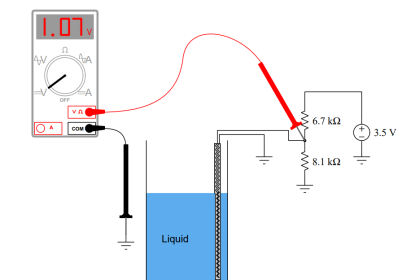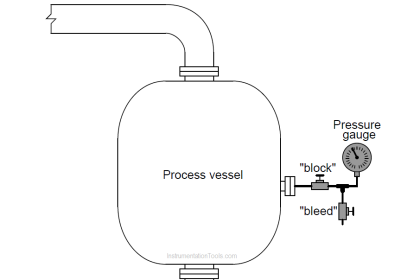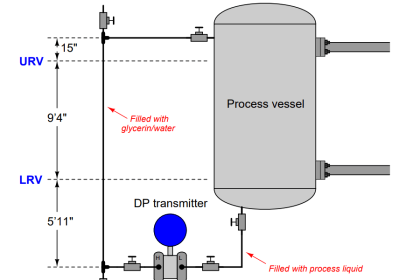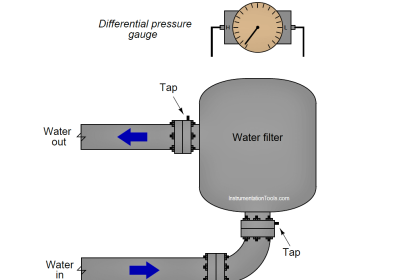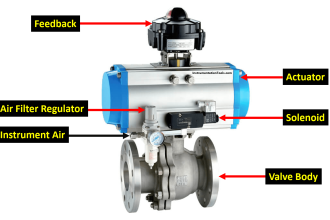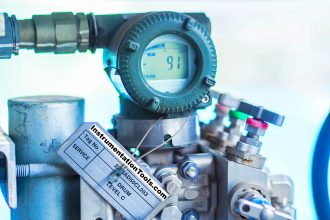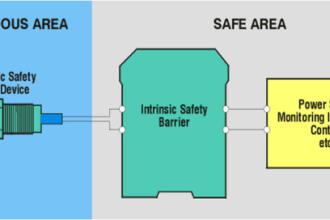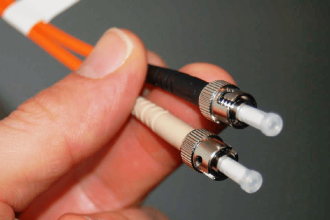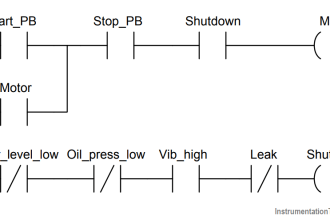A type of density gauge called a hydrometer often used to measure the acid concentration in lead-acid battery electrolyte uses a weighted float with a graduated scale at the top, designed to be read at the interface between liquid and air.
Density Gauge
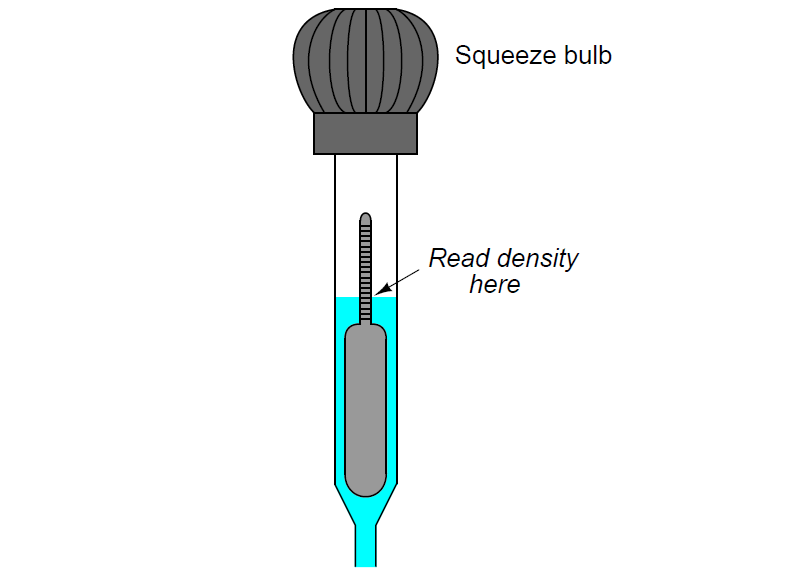
Regarding the graduated scale at the top of the float, would the larger numbers (representing greater density) be located toward the top of the scale, or toward the bottom of the scale? Explain your answer.
Answer:
The larger numbers (greater density) would be located at the bottom end of the scale, because liquids of greater density will cause the float to rise higher.
Liquids of low density will cause the float to sink further (with the liquid interface resting near the top of the scale).
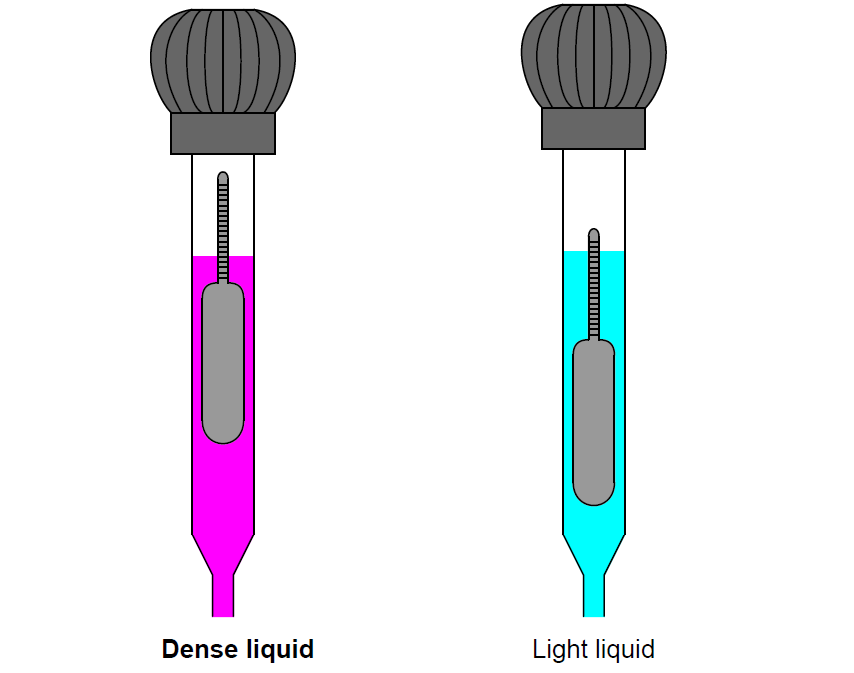
This is why people float better when swimming in the Salt Lake than they do swimming in fresh water (or even ocean water, which is not nearly as salty). Salt(ier) water is denser than fresh(er) water, which means a person’s body need not sink as deeply to displace enough weight of water to remain buoyant.
If a person tried to swim in a vat of alcohol, where the liquid density is quite a bit less than water, they would probably drown because it would be much more difficult to achieve buoyancy. This, however, might be a dream come true for some . . .
Questions for You:
1. A good problem-solving technique to apply to this is limiting cases, where you imagine extreme variations to make the problem simpler to solve. How might you apply “limiting cases” to this particular problem?
2. Hydrometers were traditionally used in the alcohol industries to measure the strength (“proof”) of an alcohol sample. Why do you think this method works, since a hydrometer primarily measures density?
3. High-accuracy hydrometers have thermometers built in so they can sense the temperature of the liquid sample. Explain what temperature has to do with density measurement by invoking a “thought experiment” to see how temperature affects the reading taken by a hydrometer.
Share your answers with us through the below comments section.
Read Next:
Credits: Tony R. Kuphaldt
